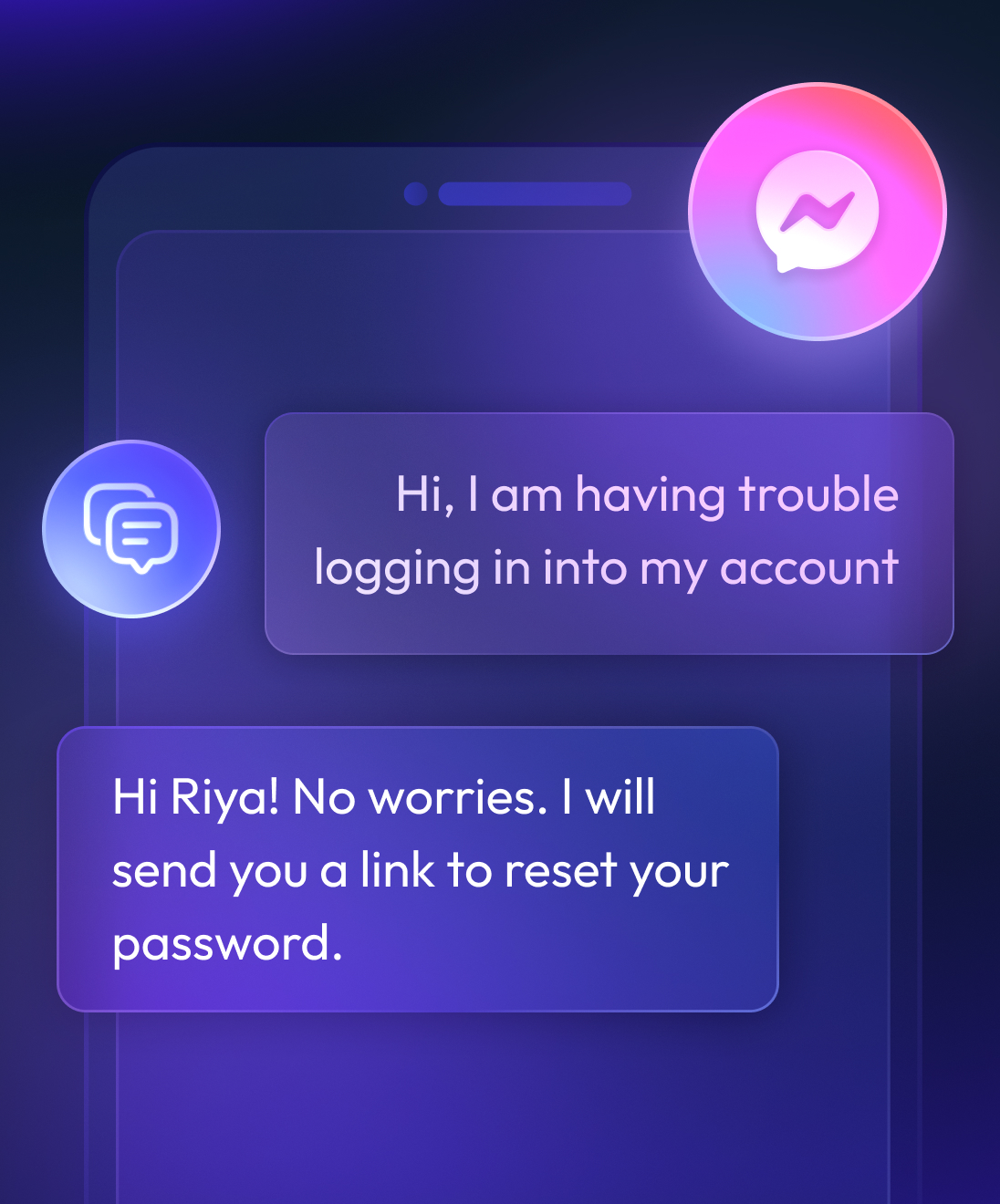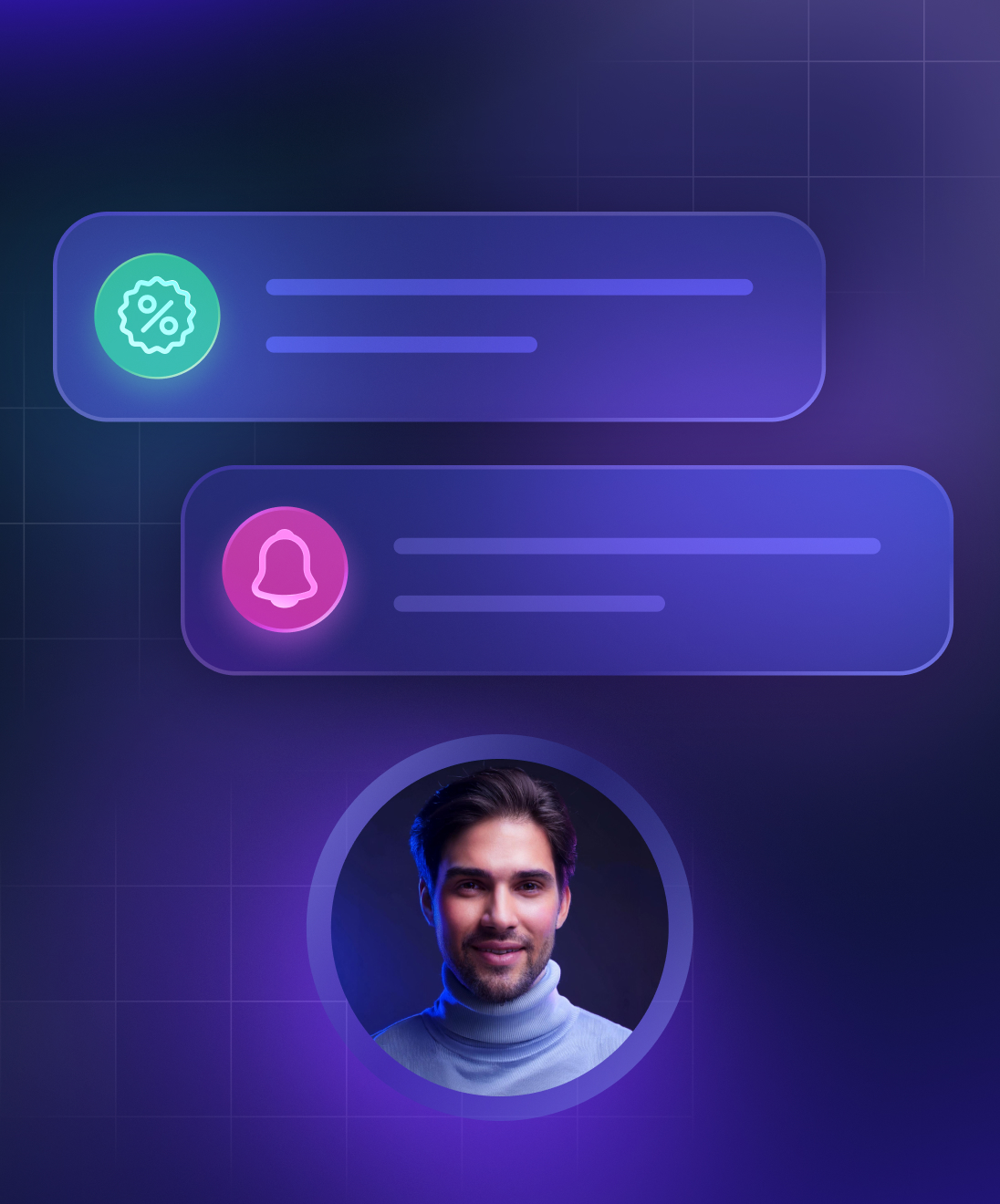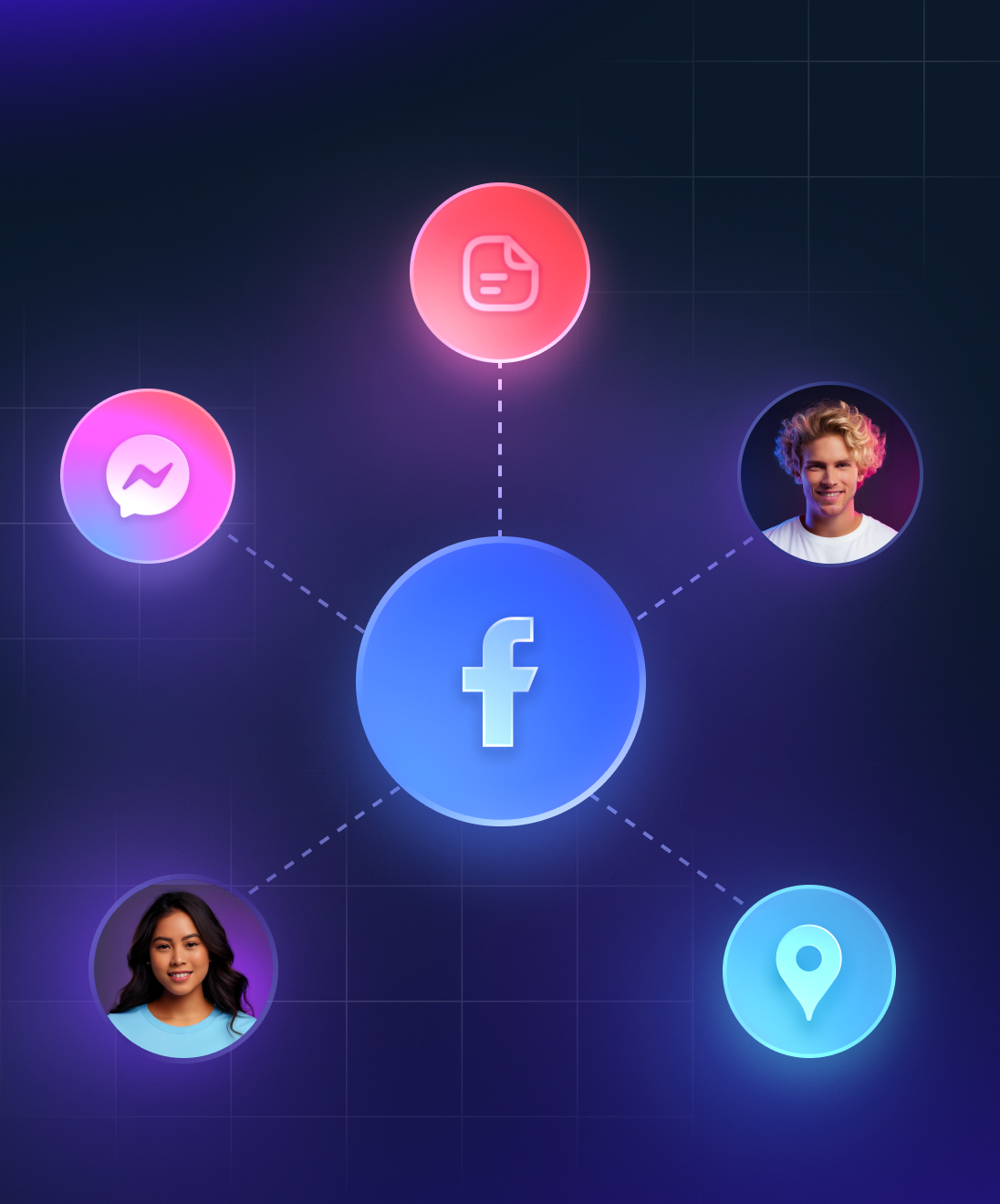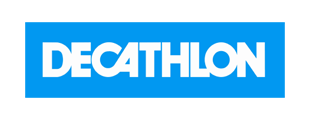Improve Customer Engagement on Messenger with the Facebook AI Chatbot
Automate your support and sales with generative AI-powered chat agents for Facebook. Streamline customer engagement through conversational AI solutions that understand customer sentiment and deliver human-like support, enhancing the overall customer experience.

Assisting 500+ enterprise customers with support solutions







Enable Chat Support on Facebook Messenger
Enhance customer support, streamline interactions, and boost engagement directly within Facebook Messenger.
Engage 100% visitors
40% inc response rate
90%+ query resolution
Provide 24x7 support
Increase CSAT by 60%
65% boost in sales
Reduce ops cost by 30%
Customise as per brand





With conversational AI solutions on Facebook, Messenger reaches a wider audience and engages with visitors 24/7. Powered by advanced NLP algorithms and LLM, gather customer data, gain context, and deliver human-like interactions, enhancing customer experience and boosting retention.

Automate 80% of common queries on Facebook Messenger, offering customers instant, self-service support anytime. For advanced issues, seamlessly connect them with live agents. Deliver round-the-clock assistance and boost customer satisfaction.

Send media-rich follow-up messages, share product updates, and re-engage users based on past interactions—all automatically. Keep conversations going and boost customer engagement effortlessly.

Keep customers satisfied by engaging them directly on Facebook Messenger. Integrate CRM and tools like MoEngage to run targeted campaigns, track feedback, and manage customer data all in one place. Ensure personalised communication and better customer insights, to improve satisfaction efficiently.
Driving Support Efficiency for 500+ Brands Globally
Unified arsenal, triumphantly together













Frequently asked questions
A Facebook Messenger chatbot is an AI-powered tool that automates conversations with customers, providing instant responses, answering common queries, and helping with tasks like order tracking or product recommendations.
A chatbot can handle up to 80% of repetitive customer queries, improve response times, provide 24/7 support, increase customer engagement, and reduce the workload on human agents. It also helps in lead generation, customer re-engagement, and delivering personalised experiences.
Yes, Facebook chatbots can be integrated with CRM platforms to store customer data, track interactions, and create more personalised communication. It can also be linked with marketing tools like MoEngage for targeted campaigns.
Yes, Verloop.io offers simple drag and drop options to design and train conversational flows for your Facebook chatbot. You can do this on your own to meet your business requirements. You can even write simple prompts to design your Gen AI-powered chatbots.
Yes, with Verloop.io powered Facebook chatbots can be configured to support multiple languages, allowing you to communicate with a global audience and provide localised customer support.
No, chatbots can handle an unlimited number of conversations simultaneously, making them highly scalable and efficient, especially during peak times.
Facebook Messenger has built-in encryption to secure conversations. Verloop.io's conversational AI platform complies with data privacy regulations like GDPR and uses secure methods when handling sensitive information.
What is cooking in Verloop.io?
Gain insights on how we are helping brands improve their efficiency and productivity.
